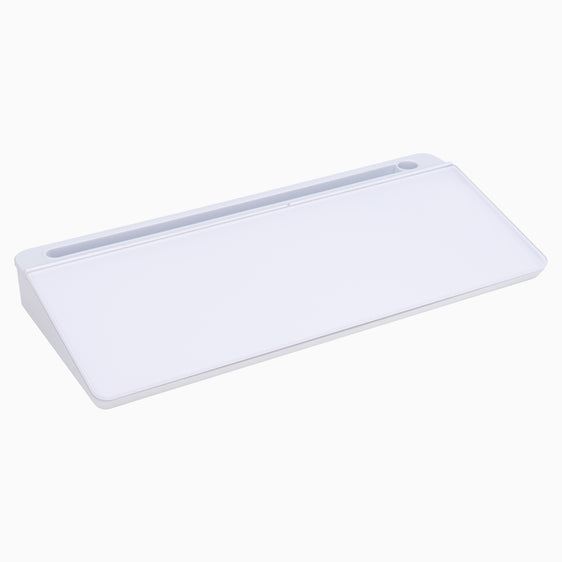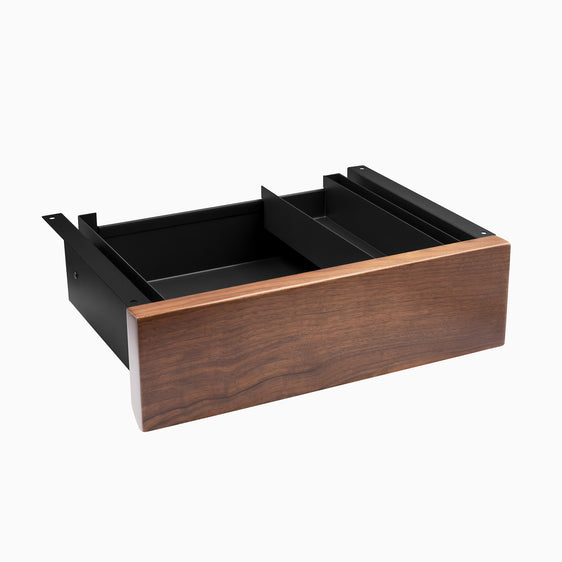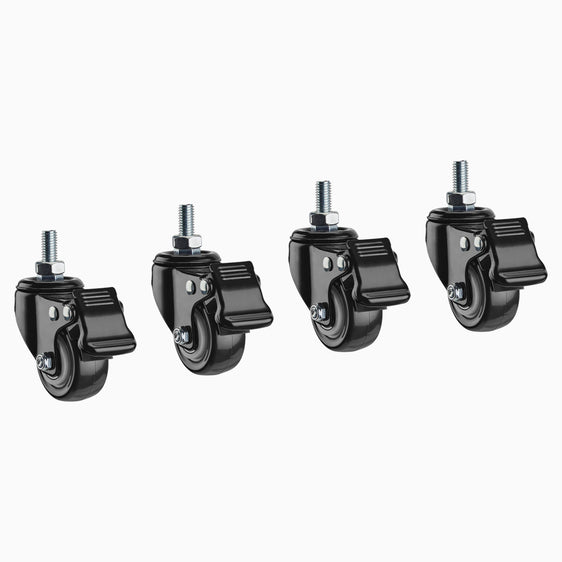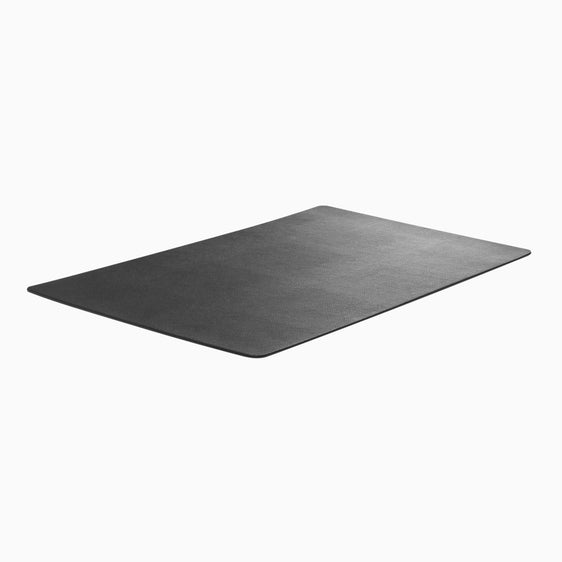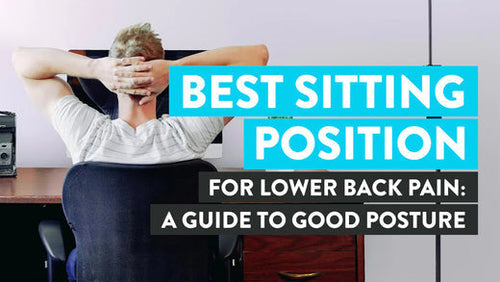
News
How Do I Choose A Standing Desk?
Hayden AdamsMost of us are starting to clue into the fact that sitting around all day isn’t good for us. Our move towards sedentary office environments as a population puts a lot of workers into lifestyles that cause joint issues and mood disorders by taking exercise out of our daily lives.
We may not notice straight away, but sitting at a desk for a prolonged period, even a half-hour, already starts to cause minor issues in our bodies. Moving around and getting up often becomes a vital part of the day. However, doing so may disrupt the work environment, whether you work alone or in a group.
While they won’t fix everything, a new height adjustable desk can take some of the sting out of having to be in one place for extended periods. So, here are some tips on how to choose a standing desk that works for your lifestyle and office environment.
How Do I Choose A Standing Desk For My Home?
The easiest way to figure out how to choose a standing desk is to start with what you need. Take a look at your existing desk and decide what isn’t working for you right now. Your home office environment may have limitations, but you won’t know what you need to work around until you take a look at your circumstances. At Desky, our standing desks come in a wide range of sizes and styles to suit every home office setup.
For most folks, choosing a standing desk starts with hearing that a standing desk can have health benefits over a sitting desk. As we become more health-conscious as a society, more individuals start looking around to see what they can change about their life to improve their health.

Is A Standing Desk Right For Me?
The easiest way to work out if you need a standing desk or not is to take a look at your lifestyle. There’s a lot of evidence out there that suggests that a sedentary lifestyle is bad for your overall health. If you find that you spend long periods sitting around while working, then a standing desk will help you get into different postures while working.
The biggest drawback of a sedentary lifestyle is its lack of activity and movement for long hours. Our bodies require movement, meaning most people’s bodies are at their best when exposed to motion regularly. Exercise, even something as mild as walking, has plenty of health benefits for the body.
Still, standing isn’t the same as going out for a walk or lifting weight. However, what it does do is engage different muscles in your body. When standing, gravity pushes down on your legs, feet, and different parts of your back. For those that sit around at a desk for work all day, you keep most of that pressure on your lower back all day, causing lower back pain or fatigue.
Also, standing can help promote a better blood flow for your body compared to sitting. By favouring muscle groups and parts of your body that you wouldn’t normally -be engaging while sitting. You can help blood move through your body. This increased flow can improve recovery from muscle fatigue or injury from being stationary for so long.
Finally, standing for a portion of your work can improve your mood. Sitting subconsciously encourages your body to rest or doze, introducing a distraction from your work. Combined with that dreaded mid-afternoon energy slump, this distraction can kill your workflow.
Overall, a standing desk is excellent for folks that don’t have the time or opportunity to move around much while working. The physical and mental benefits could well be worth the extra cost of having to buy a new desk or standing desk converter.
Types Of Standing Desks
Once you’ve decided to get a sit-stand desk, you’ll find it’s not as simple as going to the store and grabbing a desk. Standing desks all have different features that make them stand out from one another. Different desk materials, accessories, and so on can be nice for an individual customer. But, something else stands out as the main variable: how your desk can adjust its height.
Here’s a shortlist of the different kinds of standing desks and how these desks let you adjust their height, if able:
-
Converters: Rather than buying a separate desk, some standing desk converters fit on top of your existing desk and have a platform that acts as the standing desk.
{{ spec_zero_desk_converter }}
-
Electric: Electric adjustable sit-stand desks such as these will have an electric motor that will do the work of adjusting the height of the desk for you when turned on.
{{ spec_dual_melamine_desk }}
-
Manual: To adjust these manual standing desks, you have to turn a knob or crank to adjust the desk’s height.
-
Non-adjustable: These desks can’t be adjusted from the height the manufacturer has set, so you won’t be able to change the height once you buy it.
-
Pneumatic: Pneumatic adjustment systems use pressure to adjust the desk’s height, giving you finer control over the desk’s height.
Each of these adjustment systems works differently, thus having its own set of pros and cons. Combined with all the other features a standing desk can offer, you can have a wide range of options to choose from.
What Standing Desk Should I Buy?

So, with all that information out there, the question is: what kind of standing desk should I buy?
As we mentioned, the best choice will be the option that best fits your circumstances. The size, power, and adjustability of a standing desk will depend on what your workspace looks like and what needs both you and your work have.
So, here are each of the detail you might think about when choosing a standing desk and what options you might consider when maximizing the benefits of the sit-stand desk:
Height-Adjustable Standing Desks
Most folks will most likely end up looking at height-adjustable standing desks when they go to make their purchase. Even a straightforward, single-motor adjustable desk like the Desky Single Sit Stand Desk can make a large difference in how you feel while working.
{{ spec_single_sit_stand }}The main way this adjustability works is through the use of ergonomics. Proper ergonomics for your work equipment allows you to work in a way that doesn’t impede or harm the body over long periods. This is why things like a wrist rest for keyboards and shaped office chair backs have become more popular.
A height-adjustable sit-stand desk lets you get your body into the proper posture to work for a long time while standing without fatiguing weaker parts of the body. For folks that won’t use their desk for an extended period at work, adjusting the height might not be that important. For everyone else, this feature will help keep you going day after day without hurting your wrists, elbows, and shoulders.
Manual or Electric Standing Desk?
If you choose to go for a height-adjustable option, you’ll see there are two popular modes of adjusting the height: manual knobs and electric motors. Each of these has its own benefits, but standing desks with electric motors tend to win out over the manual options.
Manually adjusted standing desks allow you to dial in the height you need using a knob or lever arm. Because there are fewer components in a manual sit-stand desk than the electric versions, these desks are less expensive while still offering ergonomic benefits to the user. However, if you’re not able to adjust the knob yourself, it can cause an issue, especially if the desk is shared.
On the other hand, electric standing desks will have switches or dials that activate an electric motor. This motor then adjusts the legs of the desk, changing the height of the desk surface up or down as you change the switch. While more expensive, these desks tend to have a more acceptable degree of control than manual desks and don’t require physical adjustment from the user to change the height. For a greater look at the differences check out our electric desk vs manual standing desk comparison.
What Size Should My Desk Be?
Ultimately, the size of your desk will need to match up with your office space and workflow needs. Having a large, adjustable desk feels excellent to own but is a hard sell to make if your desk is a place you go to once or twice a day for a few minutes at a time.
Ideally, your sit-stand desk would be able to hold everything you need to get your job done. In addition to space for your monitor, you’ll need space for peripherals like a keyboard and mouse to interface with your computer. A shelf or corner of the desk to place your computer itself without crowding yourself helps out for your ergonomics and comfort, too.
Also, make sure that you measure off the area your desk will have to fit in before buying anything. If available, many desks will have their dimensions listed both on the packaging and the website listing. You don’t want to grab a desk that’s too big or too small for your office.
At What Height Should My Desk Be?
The best part of a height-adjustable stand-up desk is that you can dial in the height of the stand-up desk to your body. But, you’ll want to make sure that you follow proper ergonomics to ensure that, if you’re at your desk for a while, you don’t strain yourself at your desk.
Ideally, you’ll have two heights that you adjust between for your desk: sitting and standing heights. At both of these heights, you’d be able to sit or stand near the desk and be comfortable while maintaining proper form.
Proper form would have you at the desk with your elbows at your side, regardless of if you are standing or sitting. Your elbows should be at a ninety-degree angle, and your wrists should be hovering above the bottom part of the keyboard. You should not have to reach or strain to get to anything on your desk, either. Take a look at our guide to ergonomic computer workstations if you'd like more tips.

How Strong Should My Desk Be?
Some buyers of stand-up desks will worry about the strength of the desk, which makes sense if you are not used to these types of desks. The moving parts of a height-adjustable desk can feel like they introduce weakness into the desk.
The good news is that most adjustable stand-up desks will have more than enough weight capacity to hold standard office supplies and your computer. This weight capacity factors in the adjustable factor of the desk, so most buyers will not have to worry.
If you have heavier equipment that will sit on the desk, you can always check the weight capacity of the desk. This value will be listed on the box for the desk or the webpage, depending on where you find the desk. As long as you know the weight of the gear you need for work, you’ll know how much you need your desk to be able to handle.
Adjustment Speed
Finally, the last factor many buyers will look at is adjustment speed. If multiple people use the stand-up desk, changing between heights quickly can be a big factor in productivity. Folks that don’t want to waste too much time adjusting the desk will look at this variable, too.
Most electric stand desks right now have a good adjustment speed, meaning it should not take more than a few seconds to change the desk’s height between users or positions. There are some desks out there that have fast adjustment times. But, even with these faster adjustment speeds, you’re looking at a difference of a second or two.
Which Standing Desk Is Best?
Ideally, a standing desk will help solve some of the troubles caused by a sedentary lifestyle. By removing pressure from the area targeted by gravity while sitting and spreading it out across the body, you can improve physical health somewhat.
What kind of standing desk you need depends on your needs and what your home office space allows for. Sharing the desk with others will also change up what you need out of the new desk. Check out some of the best stand-up desks we’ve mentioned here at Desky and see if any of them will suit your circumstance!
About the author

Desky
Work better. Be more productive.

